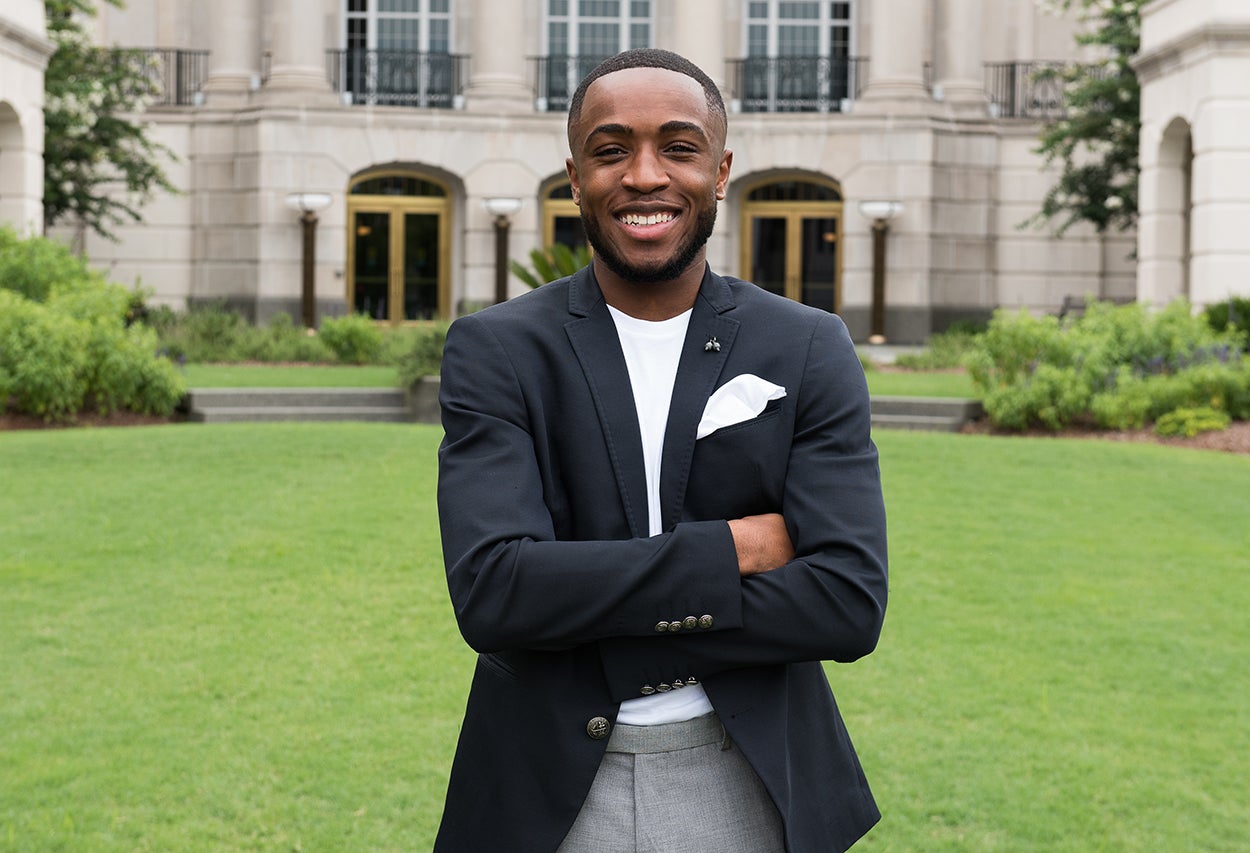The Afghan girl, the women of Arabia, the Aboriginal teenager on Australia’s Cape York Peninsula: When National Geographic offers a glimpse of the different faces and cultures from around the world, filling in the gaps between our different stories, it gives us a sense of connection. And that’s exactly what Adeyemi “Yemi” Oduwole is hoping for.
The National Geographic Society has named Oduwole a National Geographic Explorer and awarded him a $7,530 Early Career Grant to support his summer research at the University of Pennsylvania, where he will analyze the genomic diversity and genetic ancestry of 80 Charlestonians of African descent as part of the Gullah Society’s Anson Street Burials Project. Designed to offer less-experienced individuals the chance to lead a project, Early Career Grants are quite prestigious – and the application process is highly selective.
Still, says his mentor and research adviser Ade Ofunniyin (aka Dr. O), it’s no surprise that Oduwole caught National Geographic’s attention.
“He has the academic qualifications and the student-engagement qualifications, but – more than anything – Yemi just has an impressive presence: He has a capacity to impress without trying – he is just impressive,” says the adjunct African American studies professor. “Yemi represents himself really well. He represents the College of Charleston really well. He represents his heritage really well.”
Oduwole grew up in New York City, but – as the son of Nigerian immigrants – has a close connection to the west African nation and his family there.
“Nigeria and the continent of Africa really mean so much to me,” says the senior biology major, who regularly visits his grandmother and other relatives in Nigeria. “That’s why I feel so special to be selected not just for this grant, but to play a role in this research. It really relates to me. Being involved in something that means so much to me personally makes it almost too good to be true: I get the undergraduate research experience and I get to do something I care about deeply. This project is just so personal to me – and to my family.”
It is also quite personal to the people of Charleston. The Anson Street Burials Project involves analyzing the bones discovered at the site of the Gaillard Center in downtown Charleston in 2013. Since then, it has been determined that the 36 people buried there were of African descent. The research that Oduwole will be doing through the National Geographic grant will provide a richer understanding of the ancestry of these individuals and of 80 current Charlestonians of African descent.
“Just the idea that these people could be ancestors of mine was really intriguing,” says Oduwole. “I wanted to know more.”
The study findings will be used to create an arts and learning program in Charleston peninsula schools. These students – as well as other participants in broader community conversations – will not just learn about African-American history and cultural heritage, but will be given a creative platform for artistic expression. Their art will contribute to a reburial ceremony in February 2019.
“Just to make a connection between the African-American community in Charleston and their ancestry will be so meaningful,” says Oduwole. “It’s something that we really don’t have right now.”
Oduwole begins his research at the University of Pennsylvania’s Laboratory of Molecular Anthropolgy on July 18, 2018, and he is looking forward to learning about anthropological genetic research methods and collaborating with other scientists.
“It really gives me something to look forward to and to be excited about in terms of this project, but also in terms of my career in medicine,” he says, adding that his father’s career as a medical doctor has inspired his dream of becoming a doctor himself and one day opening a clinic or hospital in Nigeria. “I want to give back to the country I call home, and the next step toward that is medical school. And, because graduate and medical schools are always looking at what you’ve done in terms of undergraduate research, this is such a great opportunity – and especially with a name like National Geographic attached to it.”
Ofunniyin agrees that the grant from the National Geographic Society is going to open even more doors for Oduwole.
“We are all excited about the possibilities that this presents for Yemi, the student; Yemi, the scientist; Yemi, the future doctor; and Yemi, the person,” he says, adding that it also does a lot for the College of Charleston. “This kind of prestige brings all sorts of possibilities. We are excited. Very excited. But, most of all, we are excited about the possibilities of what these findings can tell us about the African diaspora and the history of the Charleston community.”
That outcome is what Oduwole is most excited about, too.
“There are a lot of gaps between the Charleston community and its history, and I’m happy to help close those gaps and help fill in people’s stories for them,” he says. “I’m really honored to have the opportunity to help in that narrative. When it comes to these stories, the narrator really matters.”
Featured image: Yemi Oduwole outside the Gaillard Center. (Photo by Reese Moore)





